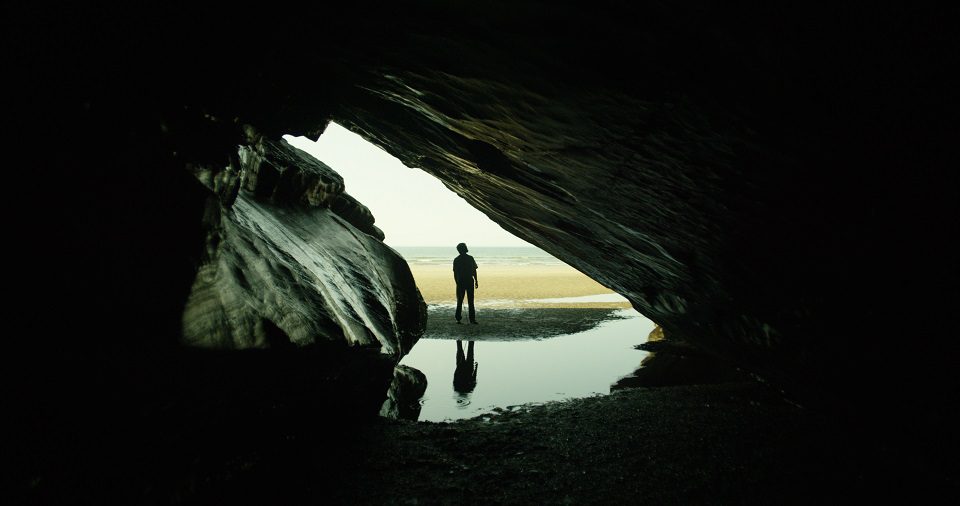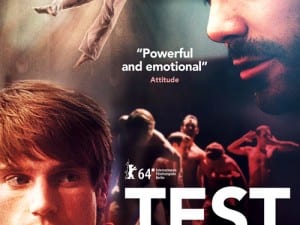With 160 documentaries, plus a whole host of talks, art installations and workshops, Sheffield Doc/Fest was a whirlwind of information-absorption. From one film to the next, the 30,000 attendees found themselves jumping between continents, topics and themes, discovering more about everything from the use of solitary confinement in the penal system to the voguing dance scene in New York. Split into 17 strands and running 10-15 June, the 2016 film programme opened with Michael Moore’s critically acclaimed Where to Invade Next and closed with The Seasons in Quincy: Four Portraits of John Berger and a Q+A starring Tilda Swinton. And although these big names bring outstanding work to the festival, it’s the lesser-known filmmakers that are often on the frontline with small budgets, telling brand new stories.
One such film was Mohamed Jabaly’s Ambulance. In 2014 there were 51 days of brutal conflict in Gaza between Palestine and Israel. During this time Jabaly – who was only 24-years-old at the time – joined a Palestinian ambulance crew and followed them around the city with his camera. Although Jabaly lives in Gaza City he is as new to the front line of war as the audience is, which makes the film all the more powerful as the viewer experiences the true horror of conflict as Jabaly does. His camera work is unflinching, often capturing dead children and disfigured bodies being pulled from the wreckage of a collapsed building. The film is not highly stylised, there is a lot of shaky camera work, yelling, confusion and no clear narrative. But, this perfectly captures the essence of war, which is messy, incoherent and terrifying. In contrast to Western media, which tones down its coverage of the conflict significantly, Ambulance captures the total devastation of seeing your neighbours and fellow-citizens murdered. It is important footage that the whole world needs to see.
Another eye opening documentary on an entirely different subject, was Sue Williams’s Death by Design. Highly commended by the judges in Doc/Fest’s Environmental Award, Death by Design uncovers the not-so-environmentally-friendly practices of the “clean” tech industry. Jumping between America and China, Williams asks important questions about the disposal of chemicals and digital equipment, the working conditions in tech factories and the invention of products that have a finite life-span. The answers that come back are absolutely appalling. In China, over 60% of ground water is now considered unfit for human contact, 26 people have tried to kill themselves at Foxconn (one of the biggest producers of technology) and 90% of electronic waste is illegally traded or dumped. And in America a lot of the tech giants have buried toxic waste in the ground that is now seeping out into people’s homes causing a significant increase in cancer. Both jaw-dropping and heartbreaking, Death by Design forces the viewer to reconsider their whole approach to technology and this mad and unsustainable obsession with constantly upgrading.
Amongst the documentaries that cause you to reassess a far from perfect world, there were also a number of wonderfully hopeful films. In the Women in Docs strand Maya Angelou was celebrated as one of the most important literary figures in America; in the No Place Like Home strand two elderly brothers return to their beloved Poland and live out their final days side-by-side and in the Chantal Akerman strand audiences come to appreciate Akerman’s pioneering approach to filmmaking. One particular film that not only told a story of hope and perseverance, but also demonstrated a unique approach to documentary creation was Notes on Blindness. Based on the life of John Hull, Notes on Blindness is an audio diary of living without sight. Directors James Spinney and Peter Middleton, unite Hull’s audio with lip-syncing actors to create a moving narrative that beautifully captures his life. A lot of the footage is dark and focuses on elements of light and sound to recreate the sensation of being partially sighted. And although there is a huge amount of pain for John as he discusses his inability to remember his wife’s face and help his children, the film’s overarching message is one of triumph when in the depths of despair. Notes on Blindness was also accompanied by Into Darkness, a virtual reality installation that allowed audiences to experience limited vision first hand.
Although Sheffield Doc/Fest is less than one week long, the number of documentaries encountered within that time offer an expansive examination of the world. It is not a festival that just facilitates entertainment and networking – although there is a lot of that – it is an event that opens up some of the most important issues facing humanity today, and asks the viewer to reconsider their position in society and their responsibility in rectifying many of the earth’s problems.
Sheffield Doc/Fest ran from 10-15 June, various venues across Sheffield.
Hannah Clugston
Doc/Fest https://www.sheffdocfest.com
Where to Invade Next http://wheretoinvadenext.com
The Seasons in Quincy http://seasonsinquincy.com
Ambulance http://www.mohamedjabaly.com/ambulance-film.html
Death by Design http://deathbydesignfilm.com
Notes on Blindness http://www.notesonblindness.co.uk
Credits:
1. Still from Notes on Blindness. Courtesy of Curzon Artificial Eye.





